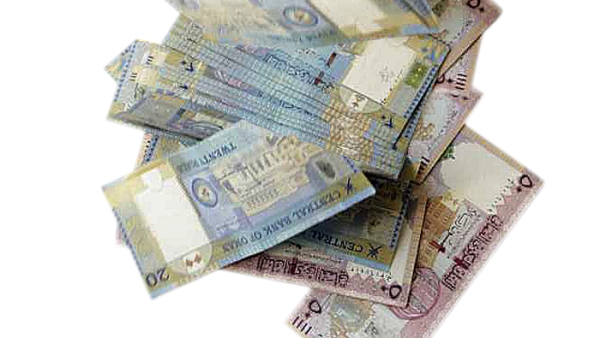
Muscat: Oman plans to implement value added tax (VAT) at a rate of five per cent by 2018 or in 2019 beginning, a spokesman from the Ministry of Finance has confirmed.
“The plans are on. We are working on the modality,” the spokesman told Times of Oman.
Last week, Darwish bin Ismail Al Balushi, Minister Responsible for Financial Affairs, was quoted in news reports saying that Gulf Cooperation Council (GCC) countries have agreed to introduce VAT at the rate of five per cent in 2018.
Stay ahead of the rest and download our free WhatsNews app for Apple, Android or Blackberry
“GCC countries have already agreed on five per cent rate after negotiations on a rate between three and five per cent, though the decision is yet to receive final approval,” the minister was quoted as saying. According to the ministry of finance spokesman, VAT is implemented all over the world and so Oman will also implement it.
“VAT will help the country’s economy to boost revenues,” the spokesman added.
VAT has been proposed as a measure to shore up revenues by the GCC economists and parliamentarians. It is expected that in Oman, around OMR300 million can be earned extra every year if VAT is implemented.
Welcoming the move, a member of Majlis Al Shura’s economic committee said that as basic necessity items (20 plus like food and other essential goods) will be excluded from the VAT list, consumers will not be hit hard. “VAT will definitely help the economy,” Tawfiq Al Lawati, the Shura member, said. Meanwhile, Gurumurthy N, a Muscat-based economist, said that VAT can streamline the tax system and avoid duplication of tax payment.
“This a step in the right direction and 5 per cent is reasonable rate to start with,” the economist said.
Last Monday, Christine Lagarde, managing director of IMF, had urged the GCC countries to implement VAT to overcome the oil price crisis.
“Start by putting in place a simple system that initially focuses on VAT—ideally, a harmonised regional VAT.
Even at a single-digit rate, such a tax could raise up to 2 per cent of GDP,” the IMF chief had said. “Oil-exporting countries that have been heavily affected by the recent plunge in oil prices can also focus on corporate income taxes, as well as property and excise taxes.
They can also continue to invest in building tax administration capacity that could eventually allow for the introduction of personal income taxes,” the IMF chief added.
Read also: Oman fuel prices for March announced
Cyril Widdershoven, energy and security specialist, said that this action is being taken to lower overall government budget deficits, which has increased due to low oil and gas revenues. “For Omani economy, it will have two positive effects: lower imports and a boost for locally produced products (which don’t have import taxes, lower salary costs), which will in the end strengthen overall economy,” the specialist said.
“Oman can also benefit if it boosts domestic output and exports to other GCC countries. Based on the GCC cooperation agreements this could be very beneficial,” the specialist added.
“Is 5 per cent enough for Oman, well, that is for the government to decide.
In European countries, VAT is between 16 and 22 per cent, so there is a great room for improvement. Not to have an economic shock procedure, start with 5 per cent, after which you can gradually increase the latter, is the best approach,” the specialist added. Lateef Shahdad, a chartered marketer and general manager at Mass Int (Schindler ), said that in desperate situations like partial or critical lull in global oil prices, VAT can always prove prudent measure to fill the gaps left in the economy due to stagnating oil prices.
“I would suggest 5 per cent at the beginning is not less and not enough, but to start with is good. But I would ask to implement in stages as sudden implementation in all the sectors can have varied effect on Oman economy,” Lateef said, adding that while implementing, government needs to balance corporate tax with VAT as it may or may not go together for everyone in Oman.
To get in touch: [email protected] / [email protected]